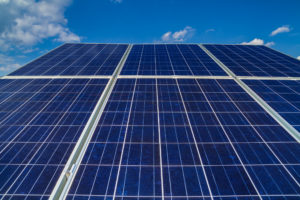As the solar industry continues to thrive and more individuals embrace clean energy, the issue of proper solar panel disposal becomes increasingly important. This article aims to provide a comprehensive guide on responsibly disposing of solar panels, emphasizing recycling, reuse, and environmentally friendly practices.
Contents
- 1 Key Takeaways
- 2 Understanding the Lifespan of Solar Panels
- 3 The Importance of Recycling Solar Panels
- 4 Finding Proper Channels for Solar Panel Disposal
- 5 Reuse and Repurposing Opportunities
- 6 Case Study: Responsible Solar Panel Disposal with Solar Panels Network USA
- 7 Expert Insights From Our Solar Panel Installers About How to Dispose of Solar Panels
- 8 Experience Solar Excellence with Us!
- 9 Conclusion
Key Takeaways
- Dispose of solar panels responsibly by prioritizing recycling, as it helps reduce waste, conserve resources, and support the growth of the clean energy industry.
- Find proper disposal channels through local recycling programs and manufacturer/retailer take-back programs, and ensure compliance with regulations to ensure responsible recycling and minimize environmental impact.
- Explore reuse and repurposing options such as donating panels to nonprofits, repurposing them for off-grid applications, or upcycling them into unique artistic and functional creations to extend their lifespan and promote sustainability.
Understanding the Lifespan of Solar Panels
Solar panels are designed to be durable and long-lasting, typically with a lifespan ranging from 25 to 30 years. However, it’s essential to understand the factors that can influence their longevity.
Lifespan of Solar Panels
Solar panels are built to withstand various environmental conditions, but their lifespan can be affected by several factors. Extreme weather events, such as hailstorms or hurricanes, can cause physical damage to the panels. Exposure to harsh climates, such as extreme heat or cold, can lead to performance degradation over time. Additionally, the quality of manufacturing and components used in the panels can impact their durability.
Regular inspection and maintenance are crucial to maximizing solar panels’ lifespan. Look for signs of deterioration, such as cracks, discoloration, or delamination. Monitor the energy output and compare it to the panel’s rated performance. Conducting these evaluations will help determine when it’s time to consider disposal.
Evaluating the Condition of Old Solar Panels
When disposing of solar panels, properly evaluating their condition is important. A thorough assessment will help determine whether they can be refurbished or reused or if recycling is the most appropriate option.
During the evaluation, inspect the physical integrity of the panels. Look for signs of physical damage, such as shattered glass or bent frames. Check for any visible wear and tear on the junction box or wiring. Assess the panel’s performance by comparing its current energy output with its original specifications.
Considering these factors will help you decide the most suitable disposal method for your old solar panels.

The Importance of Recycling Solar Panels
Recycling solar panels is critical to achieving a sustainable and environmentally friendly solar industry. It reduces electronic waste, promotes resource conservation, and supports the growth of clean energy.
Recycling: An Environmentally Responsible Approach
Recycling solar panels prevents valuable materials from ending up in landfills, where they could contribute to environmental degradation. By extracting and reusing these materials, we can reduce the demand for new raw resources and minimize the carbon footprint associated with their production.
Moreover, solar panel recycling helps recover critical elements such as silicon, aluminum, and glass, which can be used to manufacture new panels or other products. This closed-loop approach promotes a circular economy and ensures that valuable resources are not wasted.
How Are Solar Panels Recycled?
Recycling solar panels involves several stages, each aimed at maximizing resource recovery and minimizing environmental impact.
First, the panels are collected and transported to specialized recycling facilities equipped to handle their safe dismantling. The panels are carefully disassembled during the dismantling process, separating the various components. Silicon cells, aluminum frames, and glass are segregated for further processing.
Next, the recovered materials undergo refining processes to remove impurities and contaminants. Silicon cells, a valuable component of solar panels, are processed to extract pure silicon, which can be used to produce new solar cells or other electronic devices. Similarly, aluminum frames and glass undergo refining to prepare them for reuse or recycling.
Throughout the recycling process, hazardous materials, such as lead and cadmium found in some solar panels, are carefully managed according to strict environmental regulations to minimize any potential negative impact.
By embracing solar panel recycling, we can ensure that valuable resources are conserved, waste is minimized, and the environmental impact of the solar industry is reduced. Recycling solar panels is a collective effort that involves manufacturers, recyclers, and consumers working together to create a more sustainable future.

Finding Proper Channels for Solar Panel Disposal
When disposing of solar panels, finding the right channels that prioritize responsible recycling and disposal is important. Here are two key options to consider:
Local Recycling Programs and Services
Many localities have established recycling programs and services that accept solar panels. Researching and identifying these programs is an essential step in responsible disposal. Contact local recycling centers or waste management authorities for acceptance criteria, drop-off locations, and associated fees.
Participating in these local recycling programs ensures that your old solar panels are properly managed and recycled. These programs often have partnerships with specialized recyclers who can handle the intricate process of dismantling and extracting valuable materials from solar panels.
Manufacturer and Retailer Take-Back Programs
Another avenue for proper solar panel disposal is through manufacturer and retailer take-back programs. Many solar panel manufacturers and retailers have recognized the importance of responsible end-of-life management and have implemented initiatives to facilitate the recycling of old panels.
Check with the manufacturer of your solar panels or the retailer from whom you purchased them to see if they have a take-back program in place. These programs may offer convenient options such as collection points or pick-up services for old panels. Some manufacturers even offer incentives or discounts on new panels as a part of their take-back programs.
Utilizing these take-back programs ensures that your solar panels are recycled through established and reliable channels. This contributes to the overall sustainability of the solar industry and reduces the environmental impact of panel disposal.
Reuse and Repurposing Opportunities
In addition to recycling, exploring reuse and repurposing opportunities for old solar panels can extend their lifespan and minimize waste. Here are some options to consider:
Extending the Life of Solar Panels
Donating old solar panels to nonprofit organizations is a great way to extend their life and provide clean energy to needy communities. Many organizations refurbish and install donated panels in areas lacking electricity access. Donating your panels contributes to renewable energy projects and supports the transition to clean energy sources.
Furthermore, old solar panels can be repurposed for off-grid applications. They can power remote structures such as sheds, barns, or cabins, reducing dependence on traditional energy sources. With proper maintenance and installation, these panels can continue to generate clean, renewable energy for years.
Upcycling Solar Panels
For the creatively inclined, upcycling old solar panels offers a unique opportunity to transform them into functional or decorative items. Artists, designers, and DIY enthusiasts have found innovative ways to repurpose solar panels, turning them into solar-powered artwork, furniture, or garden installations.
By upcycling solar panels, not only do you give them a new lease of life, but you also contribute to sustainable art and design practices. These repurposed creations serve as a visual reminder of the importance of recycling and inspire others to think creatively about reusing materials in unique and eco-friendly ways.
Case Study: Responsible Solar Panel Disposal with Solar Panels Network USA
Background
At Solar Panels Network USA, we are dedicated to not only installing high-quality solar systems but also ensuring the responsible disposal of solar panels. This case study highlights our approach to guiding a family through the process of disposing of their old solar panels sustainably, emphasizing recycling, reuse, and environmental responsibility.
Project Overview
Our project involved assisting a suburban family with the proper disposal of their aging solar panels. The goal was to provide a comprehensive solution that prioritized environmental benefits and supported the principles of a circular economy.
Implementation
Evaluating the Condition of Old Solar Panels
Inspection and Assessment
We began by conducting a thorough inspection of the family’s old solar panels. We looked for physical damage, such as cracks and delamination, and assessed their energy output compared to their original specifications. This evaluation helped determine the most suitable disposal method.
Recycling Solar Panels
Finding Certified Recycling Centers
After evaluating the condition of the panels, we identified that recycling was the most appropriate option. We researched local recycling centers and partnered with a certified facility specializing in solar panel recycling. The center was equipped to handle the safe dismantling and extraction of valuable materials from the panels.
Recycling Process
The recycling process involved transporting the panels to the facility, where they were disassembled to separate the silicon cells, aluminum frames, and glass. These materials underwent refining processes to remove impurities, allowing them to be reused in manufacturing new solar panels or other products.
Reuse and Repurposing Opportunities
Donating Panels to Nonprofits
In addition to recycling, we explored reuse options for the panels still in relatively good condition. We connected the family with a nonprofit organization that refurbishes and installs donated solar panels in underserved communities. By donating their panels, the family extended the panels’ lifespan and supported clean energy projects in areas lacking access to electricity.
Upcycling Solar Panels
We also suggested creative upcycling ideas to the family. They embraced the concept and transformed some panels into unique garden installations and solar-powered outdoor lighting. This approach not only gave the panels a new lease on life but also promoted sustainable art and design practices.
Results
Environmental Impact
The family significantly reduced their environmental footprint by recycling and repurposing their old solar panels. The recycling process recovered valuable materials, conserving resources and minimizing waste. The panels donated to the nonprofit organization provided clean energy to communities in need, furthering the impact.
Community Benefits
The reuse of panels through donations brought clean energy solutions to underserved areas, promoting energy independence and sustainability. The family’s creative upcycling projects also inspired their community to think innovatively about reusing materials.
Cost Savings and Incentives
Participating in the manufacturer’s take-back program and the nonprofit donation initiative provided financial incentives. The family received discounts on new panels and tax benefits, making the entire process cost-effective and environmentally responsible.
Summary
This case study demonstrates how Solar Panels Network USA guided a suburban family through the responsible disposal of their old solar panels. By prioritizing recycling, exploring reuse opportunities, and embracing creative upcycling projects, the family achieved significant environmental and community benefits.
Proper solar panel disposal is essential for a sustainable future. At Solar Panels Network USA, we are committed to helping families make environmentally responsible choices, ensuring that solar panels reach their end-of-life through eco-friendly methods. Recycling, reusing, and repurposing old panels support the growth of the clean energy industry and promote a circular economy.
Expert Insights From Our Solar Panel Installers About How to Dispose of Solar Panels
Proper disposal of solar panels is crucial to prevent environmental harm. Recycling helps recover valuable materials like silicon and aluminum, which can be reused in new panels, supporting a circular economy.
Lead Solar Engineer
Manufacturer take-back programs are an excellent way to ensure your old panels are handled responsibly. These programs often include collection and recycling, minimizing the environmental impact.
Senior Solar Installer
Repurposing old solar panels for off-grid applications or donating them to nonprofits can extend their useful life and provide clean energy to those in need, making a positive environmental and social impact.
Solar Installation Expert
Experience Solar Excellence with Us!
Trust in Solar Panels Network USA, where our seasoned experts deliver top-quality solar solutions for homes and businesses nationwide. With a legacy of countless successful installations and a commitment to sustainable energy, we’re your reliable partner in the solar journey. Ready for a brighter, eco-friendly future? Call us now at (855) 427-0058 and harness the power of the sun!
Conclusion
Properly disposing of solar panels is crucial for a sustainable future. By embracing recycling, reusing, and responsible disposal practices, we can reduce electronic waste, conserve resources, and contribute to the solar industry’s growth. Let’s prioritize the environment and ensure that solar panels reach their end-of-life through eco-friendly methods.
Remember, when disposing of solar panels, consult local regulations and guidelines to ensure compliance with specific recycling and waste management requirements.
By following this article, you have gained valuable knowledge about the various aspects of solar panel disposal, including recycling processes, finding disposal channels, and exploring opportunities for reuse. Let’s work together to make recycling and responsible disposal integral to the solar industry’s sustainable journey.
About the Author
Solar Panels Network USA stands at the forefront of solar energy solutions, driven by a team of seasoned solar engineers and energy consultants. With over decades of experience in delivering high-quality solar installations and maintenance, we are committed to promoting sustainable energy through customer-centric, tailored solutions. Our articles reflect this commitment, crafted collaboratively by experts to provide accurate, up-to-date insights into solar technology, ensuring our readers are well-informed and empowered in their solar energy decisions.

